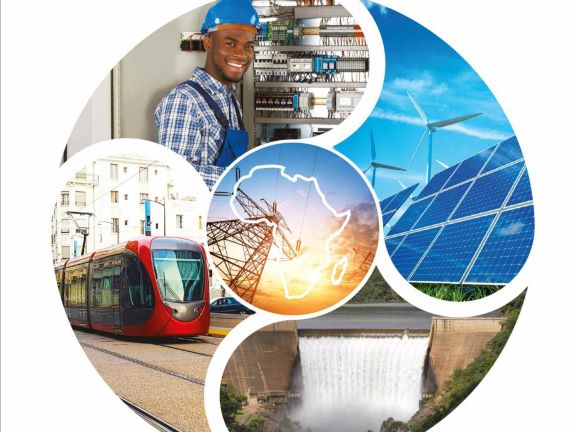

Africa Gets Going
The African Development Bank Group (AfDB) has approved an equity investment of up to US$ 25 million in ARCH Africa Renewable Power Fund (ARPF), a US$ 250 million private equity fund for renewable energy projects across Sub-Saharan Africa. The investment continues to signal the increasing viability and opportunity that renewables offer, besides their obvious attraction as a way to combat pollution and solve emerging energy demand
ARPF will provide equity for the development and construction of ten to 15 greenfield renewable energy projects in sub-Saharan Africa, adding approximately 533MW of installed energy generation capacity from renewable sources in the region, the company said.
[related_post]
The ARPF projects will focus on wind, solar PV, small to medium hydro, geothermal and biomass. They will also include grid connected independent power producers and decentralized energy projects.
“Energy investments in Africa are constrained by limited well-structured, bankable projects, as well as by unavailability of risk capital. Renewable technologies require additional support to be fully competitive over fossil fuel-based energy generation,” said Amadou Hott, the Bank’s Vice-President for Power, Energy, Climate Change & Green Growth.
The region features the lowest electrification rate worldwide – just 43% – with 590 million people lacking electricity. With consumption considerably smaller than in highly industrialized regions, even small capacity additions can benefit large groups of people. Added to this is a non existent or barely there grid for distribution, which leads to one of the highest rates of captive power generation and consumption in the whole continent, including its biggest countries like Nigeria.
“ARPF will expand the pipeline of bankable energy projects in Africa, and complement and deepen the work of the Bank in this critical area. This is vital for economic growth, and to foster transition to low carbon across the continent,” Hott added.
The Project is in line with the Bank’s Ten-Year Strategy and High-Five priorities, specifically the New Deal on Energy for Africa, which aims to achieve universal access by 2025. ARPF will also assist governments in meeting their renewable energy objectives through on-and off-grid renewable energy technologies.
The AfDB would also ensure that the highest environmental and social standards, together with climate change and gender considerations, are applied to the ARPF’s projects. The projects will have economic benefits, creating 272 full-time jobs and 5,320 part-time jobs.
1. The mandate for blending Compressed Biogas (CBG) with natural gas has come into effect…
Andhra Pradesh is striving towards greening its energy sector with quite some speed. In a…
With an objective to bolster India’s green energy goals, a Tripartite Agreement has been signed…
The Union MNRE Minister Pralhad Joshi launched the Green Hydrogen Certification Scheme of India (GHCI)…
India’s energy conglomerate Bharat Petroleum Corporation Limited (BPCL) has commissioned a 5MW green hydrogen plant…
In a historical development, the European Space Agency (ESA) has successfully launched its pioneering ‘Biomass’…